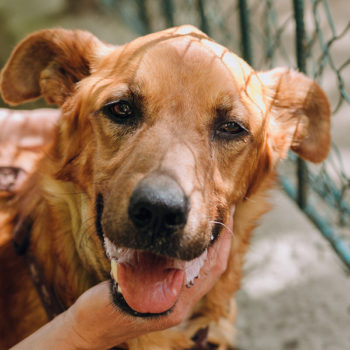A new study suggests an increased focus on microchipping by shelters and veterinarians may make a lifesaving difference for stray pets.
In a study published in the current issue of the Journal of Veterinary Behavior, researchers found that in Israel, animal shelters have a return-to-owner (RTO) rate for dogs of 67%, while the U.S. shelters they studied had RTO rates of only 13 and 19%, respectively.
The study authors identified two characteristics of the Israeli system that may have tipped the scales toward greater RTO: First, a national law requiring microchips for owned dogs; second, a single national registry for all microchips.
“Lost dogs are quickly linked to owners in such a system,” wrote the authors, adding that “companies providing microchips have their own databases, making identification of owners more complex.”
How big of a difference does microchipping make? An older study, published in the Journal of the American Veterinary Medical Association (JAVMA), found that the owners of 74.1% of microchipped stray dogs and 63.5 percent of microchipped stray cats were located when the pets came into the shelter, and most of those owners reclaimed their pets.
There are understandable reasons why microchipping isn’t as widely-adopted in the U.S. as in other countries, notably what the Veterinary Information Network calls “confusion” in the microchip marketplace. But in areas with large stray intake of owned pets, taking a look at current microchipping policies could ease the strain on the shelter system and get more pets back to their families.
For example, consider operating or expanding microchip clinics and offering microchips with all adoptions. Additionally, some of that “confusion” can be alleviated if shelters and veterinarians make sure they’re utilizing a chip from one of the 21 companies that participates in the American Animal Hospital Association’s (AAHA) Universal Pet Microchip Lookup.
Shelters, vets and clinics can also fix the “registration gap” caused because many people don’t register – or know they need to register – their pet’s microchip. Without that step, even if the pet’s chip is scanned, it’s difficult and sometimes impossible to connect the chip with the owner.
The solution is to bundle registration with the implantation of the chip, offering point-of-sale access to a registry. One good choice is the Michelson Found Animals Foundation registry, which participates in AAHA’s microchip lookup database and offers free registration of any brand or frequency of microchip.
In short: Help get pets chipped and see your RTO rate and lifesaving climb!
Zita Talamonti, Noga Zusman, Simona Cannas, Michela Minero, Silvia Mazzola, Clara Palestrini, A description of the characteristics of dogs in, and policies of 4 shelters in, different countries, Journal of Veterinary Behavior, Volume 28, 2018, Pages 25-29, ISSN 1558-7878, https://doi.org/10.1016/j.jveb.2018.06.045.

